President Raeisi: Iran's core policy supports distancing of countries from Israel
Iranian President Ebrahim Raeisi says the Islamic Republic's core policy is to support countries' distancing from Israel.
"Negligence by some Muslim countries with respect to this principled policy of the Islamic Republic of Iran has inflicted a heavy blow to the Islamic Ummah," Raeisi said in a meeting with Sudanese Foreign Minister Ali al-Sadiq Ali in Tehran on Monday.
He added that the criminal Israeli regime has always hatched plots to obstruct Muslim countries' path towards progress.
Israel would be neither a friend of Muslim countries nor interested in their development, he emphasized.
The Iranian president criticized some Muslim countries' move to normalize relations with the Tel Aviv regime, which he said runs counter to their nature.
"Had these countries tried to cut off their relations with the Zionists, today we would not have witnessed the continuation of attacks and bombings against the oppressed and Muslim people of Gaza," Raeisi pointed out.
Four Arab countries – the United Arab Emirates, Bahrain, Sudan and Morocco – agreed to normalize relations with Israel under US-brokered agreements in 2020, when former US President Donald Trump was in office.
Spearheaded by the UAE, the move has sparked widespread condemnations from the Palestinians as well as nations and human rights advocates across the world, especially within the Muslim world.
Palestinians see the accords as a stab in their back and a direct affront to their cause to liberate their lands from Israeli occupation.
Elsewhere in his remarks, Raeisi said Iran fully supports Sudan's territorial integrity and the establishment of a powerful government in the African country.
He also welcomed revival of mutual relations after seven years of hiatus.
Pointing to the two countries' capacities and determination to promote political, economic and cultural relations, he added that the exchange of ambassadors and the reopening of embassies in Tehran and Khartoum have prepared an appropriate ground for enhanced relations.
Back in October 2023, Iran and Sudan agreed to restore diplomatic relations after seven years to serve the two countries' interests.
Tehran and Khartoum decided to restore relations after Iran and Saudi Arabia signed a China-brokered agreement in March 2023 to resume ties following a seven-year break.
Riyadh closed its diplomatic missions in Tehran in 2016 after they were ransacked by protesters enraged by the Saudi execution of top Shia cleric Nimr Baqir al-Nimr.
For his part, the Sudanese foreign minister said his country is keen to restore its political and diplomatic relations with Iran.
He commended Iran's political support for Sudan in international circles and said Khartoum is ready to develop economic and commercial cooperation with Tehran.
In a meeting earlier in the day, Iranian Foreign Minister Hossein Amir-Abdollahian and his Sudanese counterpart expressed the determination of their countries to strengthen cooperation.
Pelosi: Make Iran’s rural supporters ‘feel the pain’ through sanctions
UN warns of ‘shocking’ Sudanese paramilitary war crimes in El Fasher
VIDEO | Fuel shortages in Gaza hinder emergency services
VIDEO | Another US government shutdown looms as ICE furor grows
VIDEO | EU lawmakers condemn Trump over US human rights abuses
VIDEO | Iranian Embassy marks 47 years since Islamic Revolution with high-level attendance
Funding lapse set to trigger US Department of Homeland Security shutdown
Gaza’s civil defense says 8,000 bodies of genocide victims remain under rubble


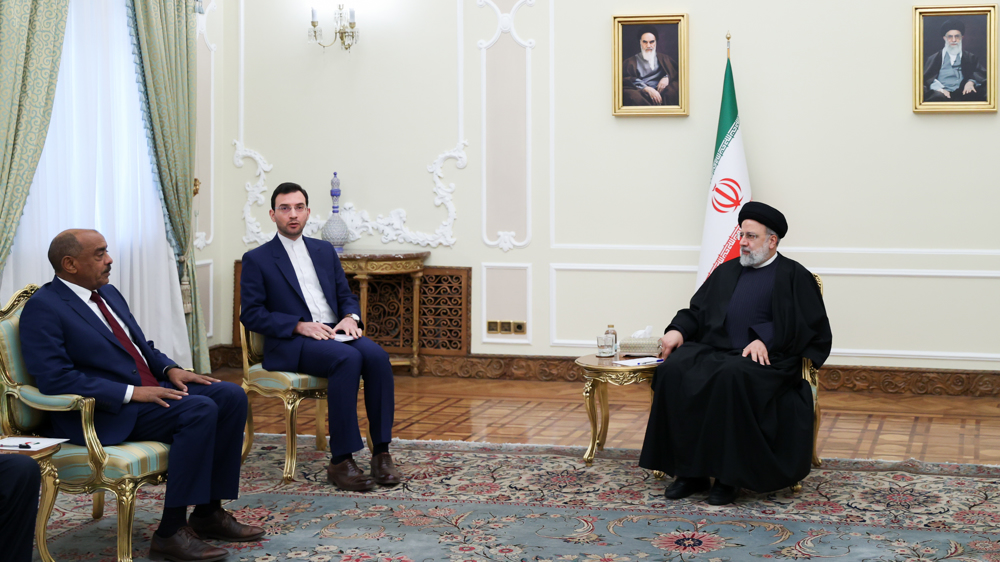
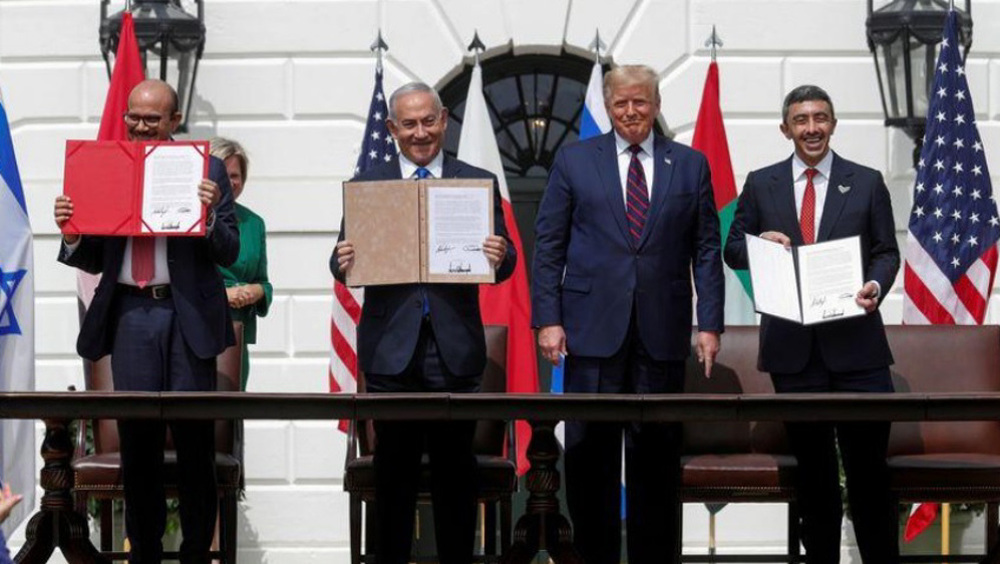
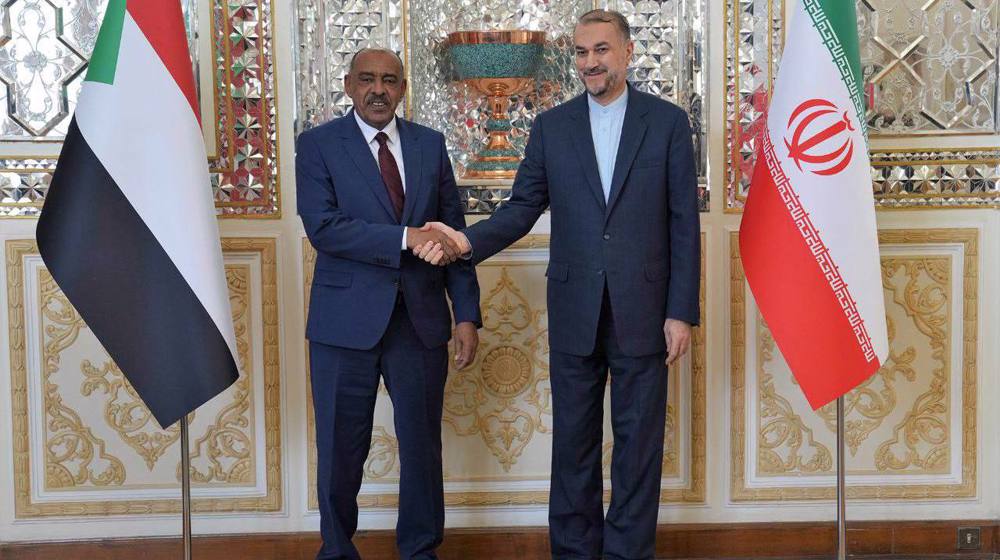
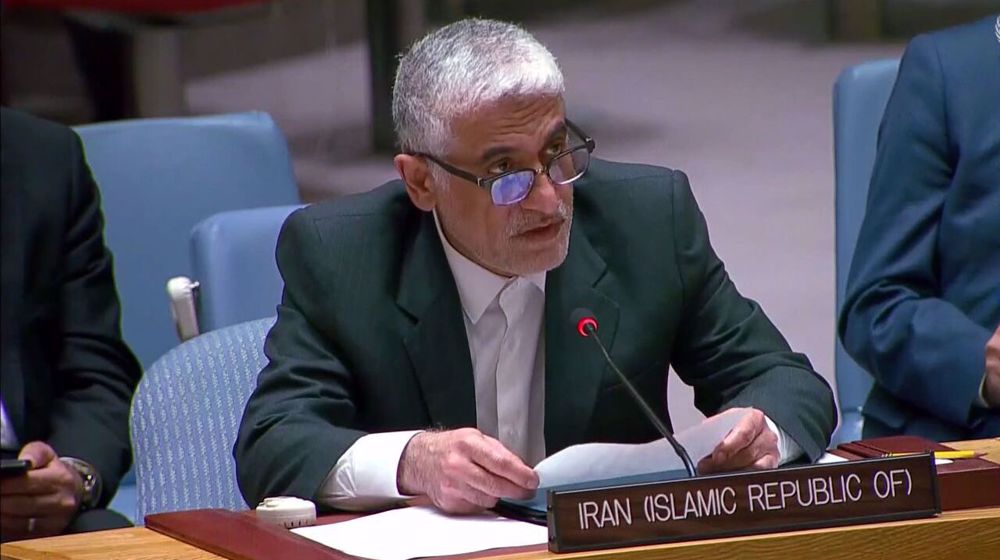
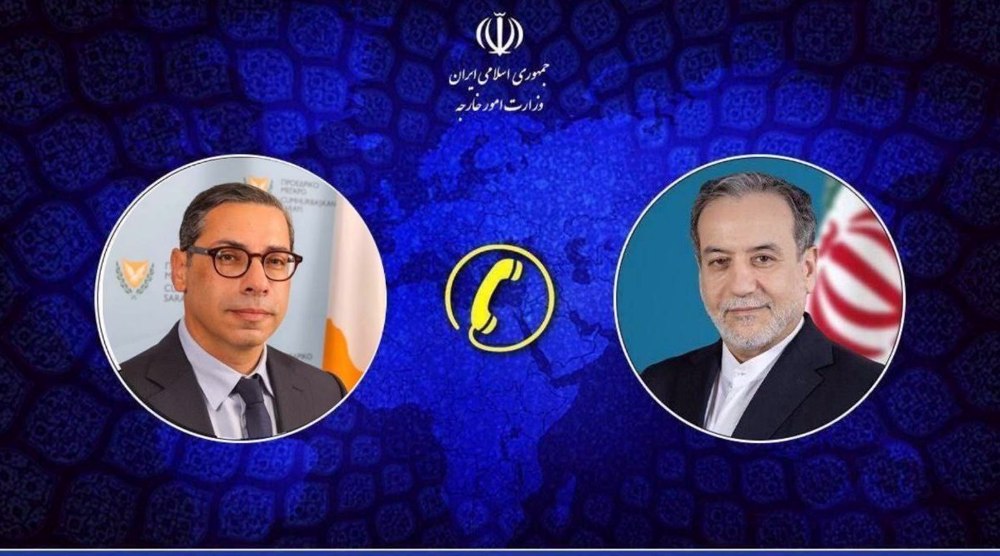
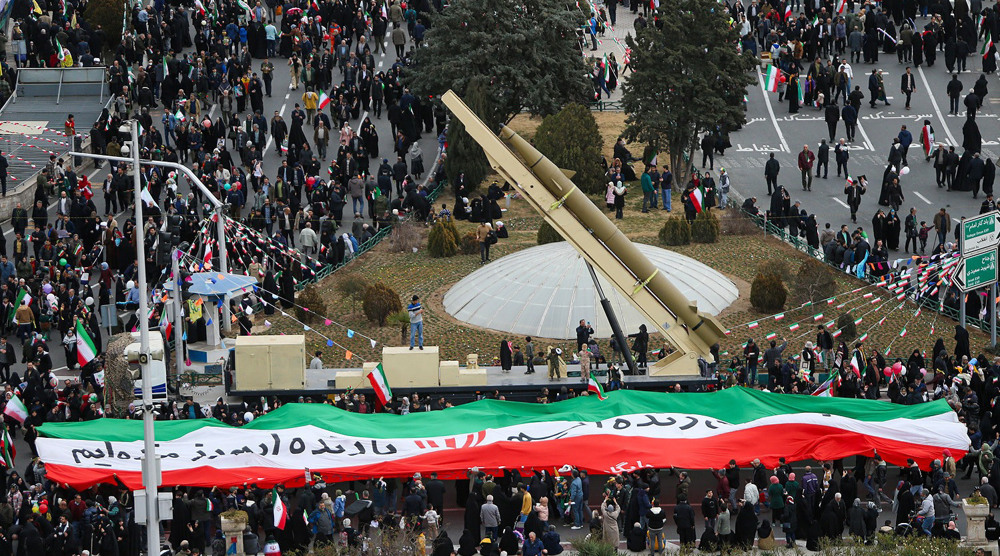




 This makes it easy to access the Press TV website
This makes it easy to access the Press TV website